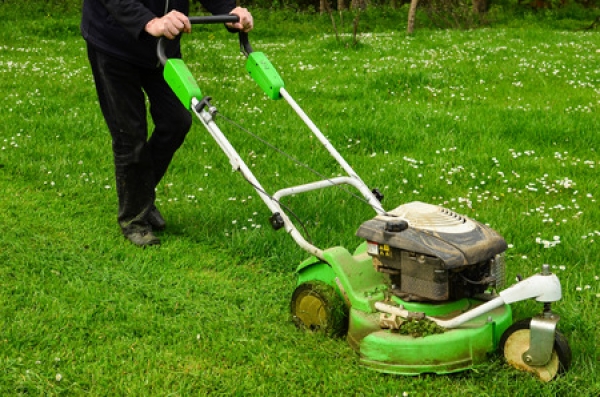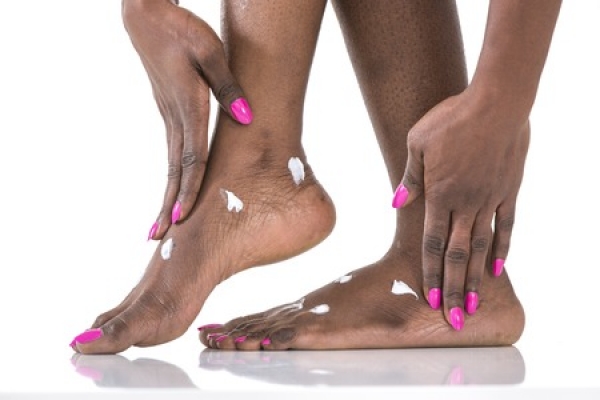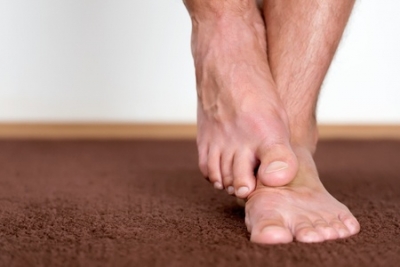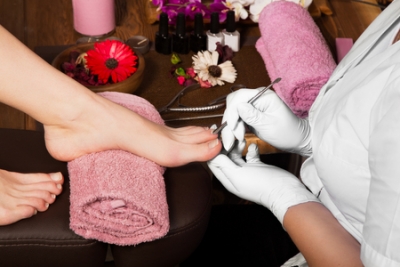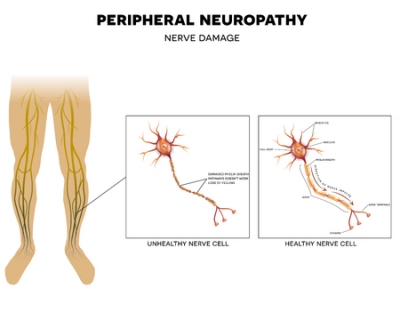Connect With Us
Blogs

Foot Health (6)
Each year nearly 85,000 people take a trip to the emergency room because of an injury sustained from a power mower, and a large number of these are to the feet and ankles. Sadly, a large percentage of these injuries occur in children. At Superior Foot & Ankle Care Center we want to help our Los Angeles County patients avoid contributing to these statistics. Below are some important reminders for using power mowers safely.
Avoid Mechanical Difficulties—many mowers today have several built-in safety features. Know and care for your mower properly:
- Read the user manual! It may not be the most scintillating read, but it can protect your feet and the rest of your body by helping you understand how to properly operate your mower.
- Perform recommended annual maintenance on your mower or have it serviced professionally.
- Do not try to “modify” or fix your mower, even temporarily with homemade repair jobs.
Child Proof Your Mow—to help protect the youngest members of the family:
- Never take children for rides on the mower. Tragically, getting on and off mowers are prime danger zones for small feet and toes.
- Keep children indoors while you mow if possible.
- If children are outside, instruct them not to try to get your attention or approach you when the mower is on.
- Teach children not to climb on or touch a mower when it is off. Many children have been burned by mowers that are cooling down or cut themselves on the sharp blades.
Follow Safe Mower Practices—although many mowing safeguards may be common sense, they bear repeating:
- Don’t mow a wet lawn. Slippery grass makes it easy to lose control of the mower.
- Wear sturdy shoes. It may be hard to believe, but many injuries that land people in the emergency room happen to those who are mowing barefoot or in flip-flops. Mower blades whirl at over 3,000 rotations per minute—choose the most protective shoes you own.
- Pick up the lawn before you mow. Mowers have the kinetic energy of a .357 handgun and when they run over objects in the lawn they can shoot out at high speed and hurt someone nearby.
Any mower injury needs immediate treatment. If it is serious, contact our Long Beach office at (562) 420-9800 and let our podiatrists, Dr. Victoria M. Foley and Dr. Constance Ornelas, assess the condition of your foot or ankle.
At Superior Foot & Ankle Care Center, we recommend that our Douglas Park/Los Angeles County area patients inspect their feet regularly. One thing to look for is changes in the skin on your feet. There are several podiatric conditions that are related to the skin and, although seemingly minor, can develop into major medical issues if not treated promptly.
Here are some of the more common skin conditions we treat and what you can do to prevent them:
Sunburn—yes, even in the winter months if the temperatures are warm enough for you to wear open sandals and shoes that expose the skin on your feet, sunburn can occur. UV rays can quickly damage skin and lead to skin cancer. Always apply a broad-spectrum sunscreen with a minimum SPF of 30 if your feet will be in the sun. Carefully check the skin on your feet, including the spaces between your toes, for moles or freckles and contact our Long Beach office (562-420-9800) immediately if you notice changes.
Fungal Infection—athlete’s foot and other skin infections can cause skin to be red, dry and flaky and be accompanied by insanely irritating itching. Left untreated, a bacterial infection may also develop, and the initial infection can spread to toenails and other parts of the body. Your best protection from fungal infections is to keep feet from coming in contact with them by wearing shoes whenever you are in a public place. Don’t share shoes, emery boards, towels, or other items that touch someone else’s feet. If you get professional pedicures, be sure the salon you use follows proper sanitizing methods for footbaths and tools.
Blisters—these small, fluid-filled sacs that form as the result of friction between foot and footwear can have a big effect on your ability to walk because of the pain they can cause. The best way to prevent blisters is to ensure that your shoes fit properly and have no rough spots inside that rub on your feet. Friction can also occur if your feet are sweaty. Keep feet dry by applying a foot powder before putting on your shoes.
If you notice any unusual changes in the skin on your feet, let our podiatrists, Dr. Victoria M. Foley and Dr. Constance Ornelas, examine them and determine if there is a condition developing that requires treatment.
In March, we celebrate National Nutrition Month. At Superior Foot & Ankle Care Center we believe that good nutrition has many positive benefits for your podiatric health. What’s the connection between what you eat and your feet? Read on.
Maintain a Healthy Weight—one of the most obvious benefits to eating healthy is getting to and then maintaining a healthy weight. Being overweight increases the risk and severity of many foot health problems, including:
- Arthritis
- Plantar fasciitis
- Flat feet
- Sesamoiditis
Many patients may not realize when it comes to your lower extremities, the pressure of excess pounds can be dramatic. For example, every pound you gain or lose exacts 4 times the amount of pressure on your knees.
Stay Active—in addition to the fact that it’s easier to be active when you’re not overweight, the foods you eat can also impact your energy level. Avoiding processed foods and those high in saturated and trans fats and sugars and focusing on lean protein and complex carbohydrates can increase your energy level and help you be more active.
Get the Nutrients You Need—good nutrition is about eating a varied diet. Enjoying a rainbow of produce, both fruits and vegetables will ensure that your body gets all of the many nutrients it needs. Certain fruits and vegetables like blueberries and red peppers can help fight inflammation, a common source of pain in podiatric disorders. Making choices that ensure you get the calcium you need from dairy products, leafy greens, and certain fishes will build strong bones—something that’s important to your feet since over a quarter of all the bones in your body can be found there.
Avoid Diseases that Harm Your Feet—your diet can lower your risk for certain diseases like diabetes, heart disease, and high blood pressure. Each of these conditions causes problems that can harm your feet such as poor circulation and neuropathy.
If you have questions about ways that your diet can improve the health of your feet, contact our Long Beach office by calling: (562) 420-9800. Our podiatrists, Dr. Victoria Foley, and Dr. Constance Ornelas. We want to help our patients be proactive about their health and take the necessary steps to lead active lives.
January is a good time for starting new habits, and we at Superior Foot & Ankle Care Center would like to urge patients to make this the year that you commit to better care of your feet. We believe in educating our patients to be proactive about the health of their feet. There are many ways that you can reduce your risk of injury and foot disorders and improve your podiatric health. Below are some suggestions:
- Wash your feet every day with mild soap and warm water. Dry them thoroughly, with particular attention to the area between the toes. This will significantly reduce the risk of athlete’s foot.
- Don’t walk barefoot. Out in public, walking without shoes increase your risk of coming in contact with a fungal infection. Even at home, you can protect your feet from stepping on sharp objects by keeping them covered.
- Get in the habit of inspecting your feet on a regular basis. The best outcomes for foot disorders occur when they are treated in their earliest stages. Being vigilant about reporting changes in skin or nail color, swelling, bumps or growths, bruising and cuts that don’t seem to be healing to our podiatrists, Victoria Foley or Dr. Constance Ornelas, can save you from prolonged and invasive treatments.
- Making wise shoe choices. Did you know that the single most significant step you can take to improve the health of your feet is choosing good shoes? Styles with roomy toe boxes that don’t constrict your toes, adequate arch support and laces for a firm fit can reduce the risk of falls, joint conditions, and toe deformities. In addition, getting away from wearing high heels can prevent neuromas and lessen the chances of bunions and several other podiatric problems.
- Apply sunscreen, not just on beach days but any days when the bare skin of your feet will be exposed in open sandals or shoes to the sun. The skin on your feet is just as susceptible to skin cancer as the skin on the rest of your body.
- Take care of toenails. Keep your nails trimmed straight across and not too short to prevent ingrown toenails from developing.
Better foot care needn’t be complicated or time-consuming. A few simple changes in your daily regimen can make a world of difference. If you have questions regarding the care of your feet, contact our Long Beach office today by calling: (562) 420-9800.
It’s the season of Thanksgiving and here at Superior Foot & Ankle Care Center we think your feet deserve to be on the list of things that you’re thankful for! The 26 bones, 33 joints, 107 ligaments and 19 muscles in each of your feet work together in complex and amazing ways to enable you to do all the activities you enjoy. Why not show your feet some gratitude with one or more of these proactive podiatric health ideas:
Pay attention: Many times your feet are the starting place of diseases that affect your entire body such as diabetes, arthritis, circulatory and nerve problems. Get in the habit of inspecting your feet regularly and report any unusual changes to the foot doctor. Even more minor problems—ingrown toenails, warts, athlete’s foot—are more easily treated when caught in their earliest stages.
Do a shoe review: Are your shoes hurting your feet? Check to see that the shoes you wear have adequate arch and ankle support as well as cushioning for the sole. This will go a long way to preventing foot injuries and chronic conditions. Look for signs of wear and don’t continue to use shoes that are stretched out or have tears or loose stitching.
Have a spa day: pamper your feet with a relaxing foot soak. Then carefully trim toenails (straight across and not too short to avoid ingrown nails). Finish with a rich moisturizer massaged into your feet. If you prefer a salon pedicure just be sure to choose a place that follows proper sanitizing procedures for foot baths and tools to prevent fungal infections.
Watch your weight: being overweight puts excess strain and pressure on your feet and is a contributing factor in many foot problems. Maintaining a healthy weight will help reduce foot pain.
Get a checkup: When’s the last time you were in to our Long Beach office? Make an appointment by calling 562-420-9800 and let our podiatrists, Dr. Victoria Foley and Dr. Constance Omelas examine your feet. The foot doctor can alert you to any potential problems and make recommendations for ways that you can help keep your feet healthy.
Neuropathy refers to nerve damage. One source of neuropathy in the feet is alcoholism. It’s important for patients to be forthcoming with the foot doctor about alcohol intake. In honor of National Alcohol Awareness Month we at Superior Foot & Ankle Care Center would like to offer the following facts about alcoholic neuropathy:
- The ethanol found in alcohol damages nerve tissue.
- In addition, poor diet and lack of certain vitamins (also common in alcoholics) can contribute to nerve damage.
- Symptoms of alcoholic neuropathy include: loss of sensation and numbness, tingling, pain, burning, muscle spasms and muscle weakness.
- Nerve damage caused by overuse of alcohol is usually permanent.
- There are other possible causes of neuropathy that our podiatrists, Dr. Victoria Foley and Dr. Constance Omelas will need to rule out. They will start by examining your feet and may order blood or other tests such as nerve conduction and nerve biopsy.
- Potential dangers of alcoholic neuropathy include greater likelihood of injury due to lack of sensation. Similarly, conditions such as athlete’s foot can progress to the point of open sores because the patient does not perceive the symptoms in their earlier stages. Infections are more likely to develop in these scenarios. Muscle dysfunction can increase the chance of falls.
- There are treatment options available to lessen the symptoms of alcoholic neuropathy such as B vitamins, prescription medications for pain, galvanic stimulation, magnetic therapy and orthotic inserts.
- To prevent further nerve damage from occurring, patients with alcoholic neuropathy must stop drinking. If you want information on treatment for alcoholism you can ask the foot doctor for a referral or visit ncadd.org.
If you have noticed signs of neuropathy in your feet or have other questions about this condition contact our Long Beach office to schedule an appointment by calling: 562-420-9800.
